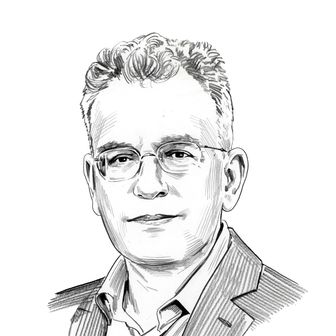An 85-year-old urban planner with a walker – as rock star? At Audrey Cohen College earlier this month, cameras flash, acolytes line up for autographs, publicists circle, and old friends (Barbara Epstein, Stanley Crouch, Henry Stern) pay homage. At the center is Jane Jacobs, making a one-night appearance in a city that without her would be a profoundly different place.
It’s fitting that she’s come to Audrey Cohen, located not on some tree-rimmed concrete plaza carved out of flattened slums but in a loft building on Varick Street. In 1961, Jacobs published The Death and Life of Great American Cities, a book advancing the then-radical idea that demolishing whole neighborhoods to put up sterile, socially engineered housing projects just made things worse. It’s the Blonde on Blonde of urban planning, prescient to the point of having retrospective moral force.
Not to mention her opposition to another Robert Moses grand project, the Lower Manhattan Expressway, a proposed eight-lane highway that would have run across Broome Street, connecting the Holland Tunnel with the Williamsburg Bridge. (It would have required the demolition of what became SoHo.) She led the fight to stop it before, in 1968, she abandoned Hudson Street – and the city she helped save – for Toronto. She returns infrequently, which made this night important to her urban-planning fan base.
The tweedy crowd eats up Jacobs’s pronouncements – tonight’s topic is officially “the aging of city neighborhoods” – as if they’re Zen koans. On gentrification: “In cities, success can kill itself.” On real-estate prices: “If you look at the most noxious slums in nearly any city, you’ll find fine mansions. A neighborhood needs diversity. Too much of anything – rich people, mansions – is dull. The people who built the mansions don’t think they’re dull, but their kids will. The West Village is losing businesses, and this is the time to notice it, before people say, ‘Oh, look, there’s nobody who wants to live here. They want a more vibrant neighborhood.’ “
Someone asks her about NYU’s relentless expansion: “They’re so righteous … Excuse this spleen. I have a lot of resentment about how neighborhoods and people are victimized.” Another asks whether she misses New York. “Everybody in the world recognizes this about Americans,” she says. “Americans think that nowhere else is real.”
